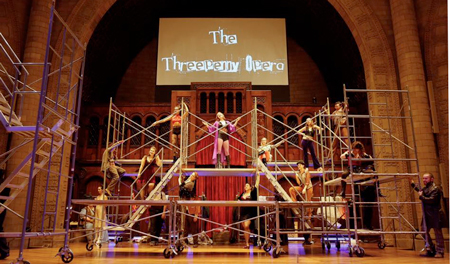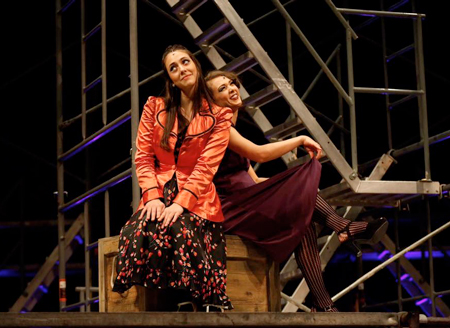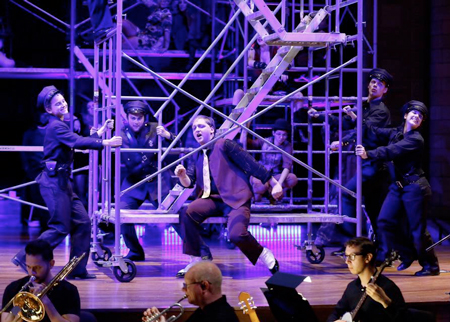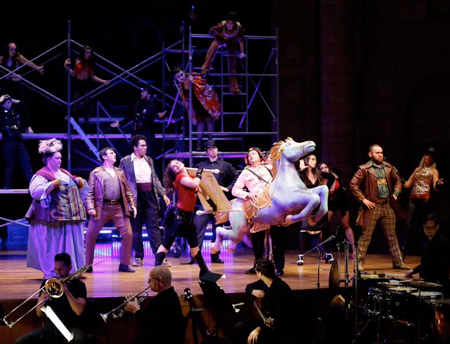by Daniel Hathaway

Threepenny was hastily assembled by Bertolt Brecht and Kurt Weill in Berlin in 1928, drawing heavily on John Gay’s 1728 The Beggar’s Opera. That “ballad opera” satirized the conventions of Italian opera in Handel’s time, and turned the world on its ear by elevating notorious criminals to star status.
Brecht and Weill set their Weimar period production in Victorian London. Skiba changed the venue to New York in the 1970s and made use of an English libretto by Michael Feingold. Soho — a neighborhood in both cities — remained the scene of the crimes, though the beggars and whores of Manhattan centered their nefarious activities around an inauguration parade.
The cast was strong both in acting and singing prowess. Jake Dufresne made a commanding J.J. Peachum, the head of the beggars, and Nan Golz and Sabina Balsamo turned in vivid performances as Mrs. Peachum and their daughter Polly. Though preppy in his looks and bearing, Ethan Burck was vocally splendid as Macheath — Mack The Knife — and Elizabeth Rosenberg fully inhabited her role as Jenny Diver, Mack’s mistress. Chad Castilla was fawningly humorous as Filch.


Skiba deployed his performers skillfully. A slo-mo scene in the penitentiary involving beggars and cops was hilarious, as was the “Deux ex machina” finale where Mack is spared from the gallows by Tiger Brown, riding in on a horse that might have been nicked from a carousel.

And Threepenny Opera is long! At three and a half hours, the glacial unfolding of the plot and the lack of any really memorable music other than “Mack the Knife” brings on a tedium that demands cuts in the material. But bouquets to the BW performers — many of them freshmen — who demonstrated great breadth and depth of talent in this admirable, student production.
Published on ClevelandClassical.com October 31, 2017.
Click here for a printable copy of this article



